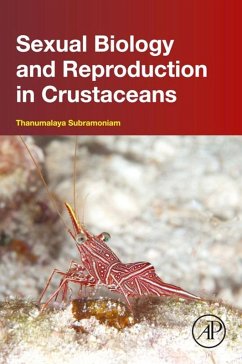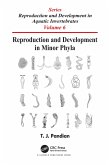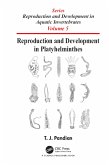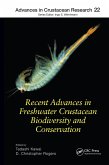Sexual Biology and Reproduction in Crustaceans covers crustacean reproduction as it deals with the structural morphology of the gamete-producing primary sex organs, such as the testis and ovary, the formation and maturation of gametes, their fusion during fertilization, and embryonic development that lead to the release of larvae. Constituting a diverse assemblage of animals, crustaceans are best known by their common representatives, such as shrimps, lobsters, and crabs, but also include many more less familiar, but biologically important forms.
This work covers the variety of ways in which both male and female gametes are produced by evolving different sexual systems in crustaceans, the range of reproductive systems, and the accordingly, and highly diverse, mechanistic modes of sex determination. In addition, the book features such topics as genetic and environmental determinants in sex determination pattern, variability of mechanisms of fertilization among different species, the origin of different mating systems, the associated mating and brooding behaviors, and the adaptive ability to different environmental conditions with discussion on the evolutionary ecology of social and sexual systems in certain species, which have shown eusocial tendencies, similar to social insects.
Marine species occupying diversified ecological niches in tropical and temperate zones reproduce under definitive environmental conditions. Therefore, reproductive ecology of different crustaceans inhabiting different ecological niches also constitutes another important aspect of the work, along with yolk utilization and embryogenesis leading to release of different larval forms, which reflect on their aquatic adaptability.
This work covers the variety of ways in which both male and female gametes are produced by evolving different sexual systems in crustaceans, the range of reproductive systems, and the accordingly, and highly diverse, mechanistic modes of sex determination. In addition, the book features such topics as genetic and environmental determinants in sex determination pattern, variability of mechanisms of fertilization among different species, the origin of different mating systems, the associated mating and brooding behaviors, and the adaptive ability to different environmental conditions with discussion on the evolutionary ecology of social and sexual systems in certain species, which have shown eusocial tendencies, similar to social insects.
Marine species occupying diversified ecological niches in tropical and temperate zones reproduce under definitive environmental conditions. Therefore, reproductive ecology of different crustaceans inhabiting different ecological niches also constitutes another important aspect of the work, along with yolk utilization and embryogenesis leading to release of different larval forms, which reflect on their aquatic adaptability.
- Forms a valuable source of recent references on the current research in crustacean reproductive physiology
- Covers various mating and breeding systems, providing illustrative examples for sexual selection, parental care of developing eggs and embryos, and the evolution of other reproductive behaviors
- Features contributions written in the form of review articles, enabling readers to not only gain information in the respective subject, but also help them stimulate ideas in their chosen field of research
- Includes a glossary created by the author to define technical terms
- Demonstrates the ability of crustacean species to serve as useful model systems for other organisms, to investigate issues related to sexual conflict, mate choice, and sperm competition
- Discusses techniques in endocrine research to help researchers in aquaculture develop protocols in the control of reproduction
Dieser Download kann aus rechtlichen Gründen nur mit Rechnungsadresse in A, B, BG, CY, CZ, D, DK, EW, E, FIN, F, GR, HR, H, IRL, I, LT, L, LR, M, NL, PL, P, R, S, SLO, SK ausgeliefert werden.









